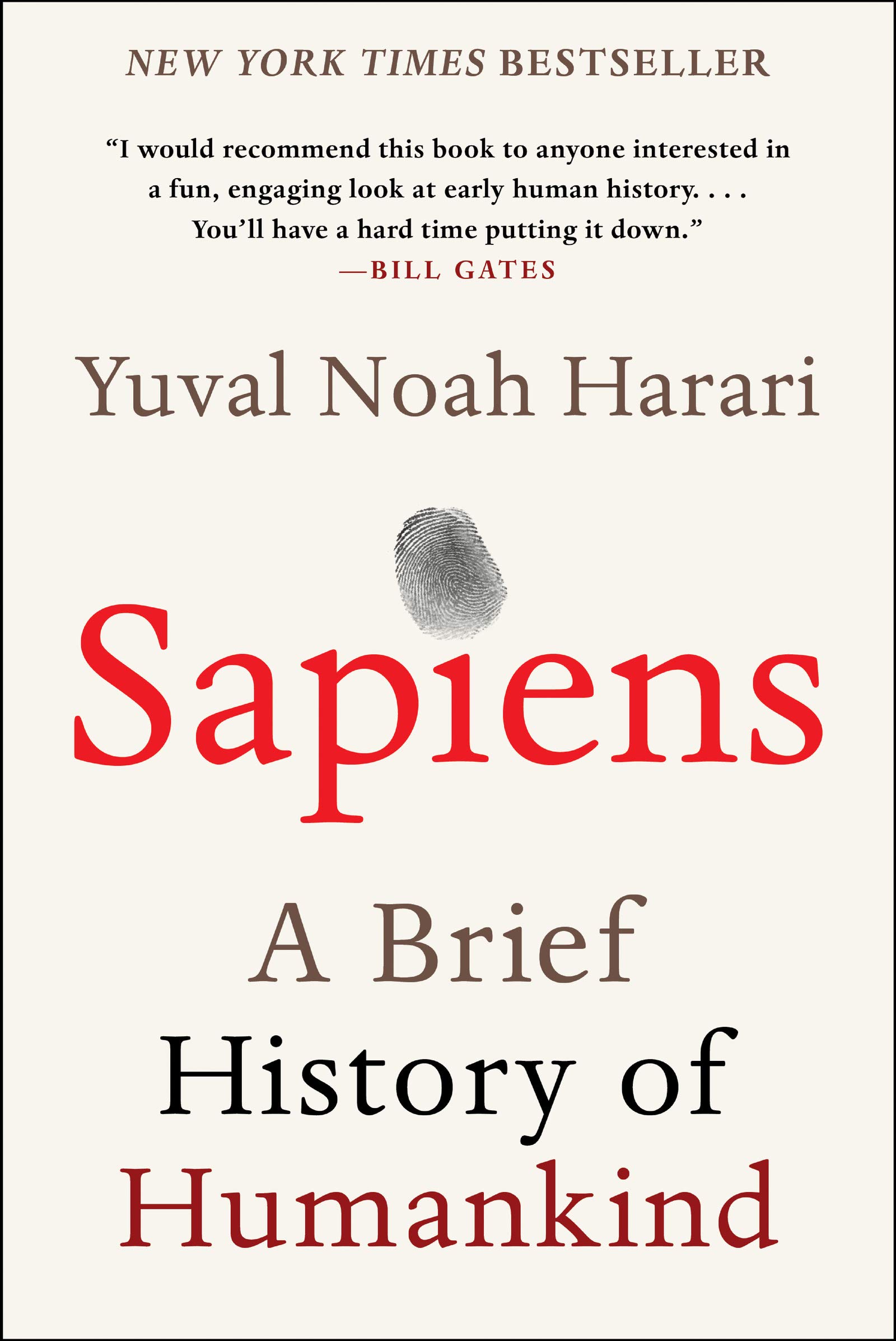
Sapiens: A Brief History of Humankind
Official U.S. edition with full color illustrations throughout.
#1 New York Times Bestseller
The Summer Reading Pick for President Barack Obama, Bill Gates, and Mark Zuckerberg, now available as a beautifully packaged paperback
From a renowned historian comes a groundbreaking narrative of humanity’s creation and evolution—a #1 international bestseller—that explores the ways in which biology and history have defined us and enhanced our understanding of what it means to be “human.”
One hundred thousand years ago, at least six different species of humans inhabited Earth. Yet today there is only one—homo sapiens. What happened to the others? And what may happen to us?
Most books about the history of humanity pursue either a historical or a biological approach, but Dr. Yuval Noah Harari breaks the mold with this highly original book that begins about 70,000 years ago with the appearance of modern cognition. From examining the role evolving humans have played in the global ecosystem to charting the rise of empires, Sapiens integrates history and science to reconsider accepted narratives, connect past developments with contemporary concerns, and examine specific events within the context of larger ideas.
Dr. Harari also compels us to look ahead, because over the last few decades humans have begun to bend laws of natural selection that have governed life for the past four billion years. We are acquiring the ability to design not only the world around us, but also ourselves. Where is this leading us, and what do we want to become?
Featuring 27 photographs, 6 maps, and 25 illustrations/diagrams, this provocative and insightful work is sure to spark debate and is essential reading for aficionados of Jared Diamond, James Gleick, Matt Ridley, Robert Wright, and Sharon Moalem.
Sapiens: A Brief History of Humankind by Yuval Noah Harari is a groundbreaking exploration of the history of our species, from its humble beginnings as hunter-gatherers to its current status as the dominant force on Earth. Harari argues that humans are not simply the product of their genes, but also of their culture and environment. As we have evolved, our brains have become increasingly complex, allowing us to develop language, art, and technology. At the same time, our social structures have become more intricate, and we have come to rely on cooperation and collaboration to survive and thrive.
Harari's book is divided into four parts. The first part, "The Cognitive Revolution," traces the emergence of modern humans from our evolutionary ancestors. Harari argues that the development of language was a key factor in our species' success, as it allowed us to share information and cooperate on a large scale. The second part of the book, "The Agricultural Revolution," examines the impact of the transition from hunting and gathering to farming on human societies. Harari argues that this transition led to a number of profound changes, including the rise of cities, the development of class structures, and the emergence of warfare.
The third part of the book, "The Scientific Revolution," explores the impact of the scientific revolution on human society. Harari argues that the development of science and technology has given humans unprecedented power over the natural world, and has also led to a number of new challenges, such as climate change and nuclear proliferation. The fourth and final part of the book, "The Technological Revolution," examines the impact of the technological revolution on human society. Harari argues that the development of new technologies, such as the internet and artificial intelligence, is rapidly changing the way we live and work.
Sapiens is a thought-provoking and wide-ranging book that offers a unique perspective on the history of our species. Harari's writing is clear and engaging, and he does an excellent job of weaving together a wide range of disciplines, including history, anthropology, biology, and psychology. The book is a must-read for anyone who is interested in understanding the human condition.
Rating: